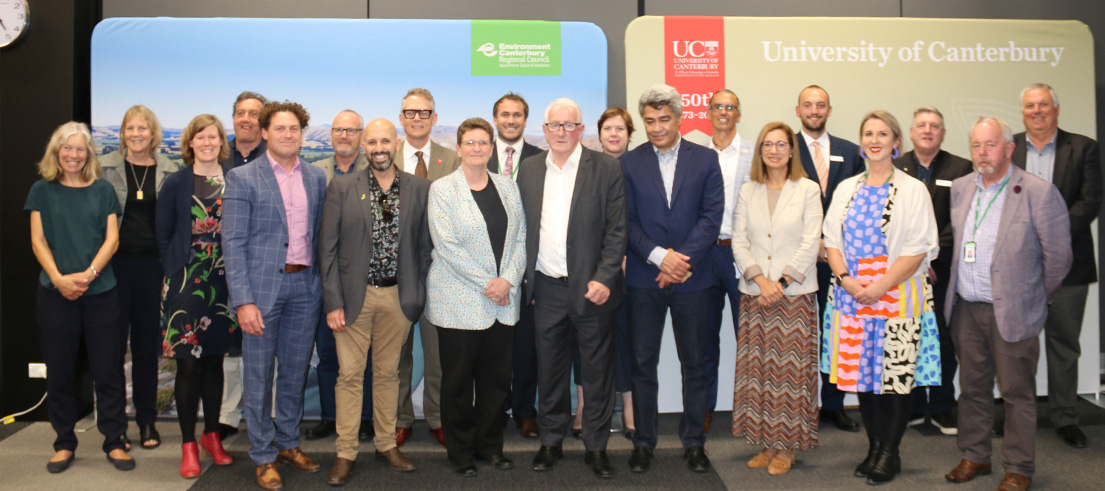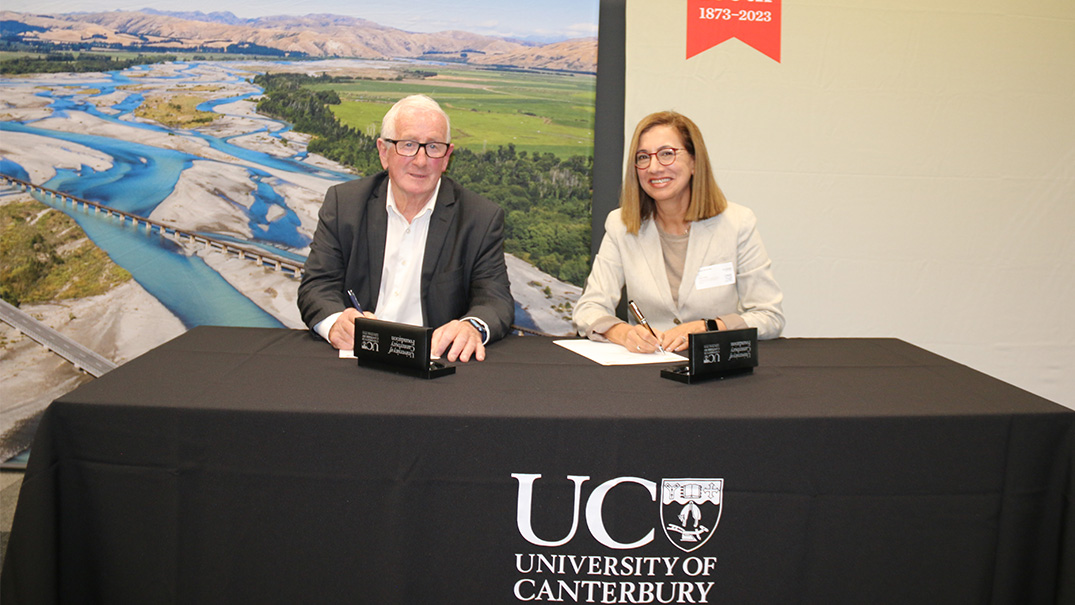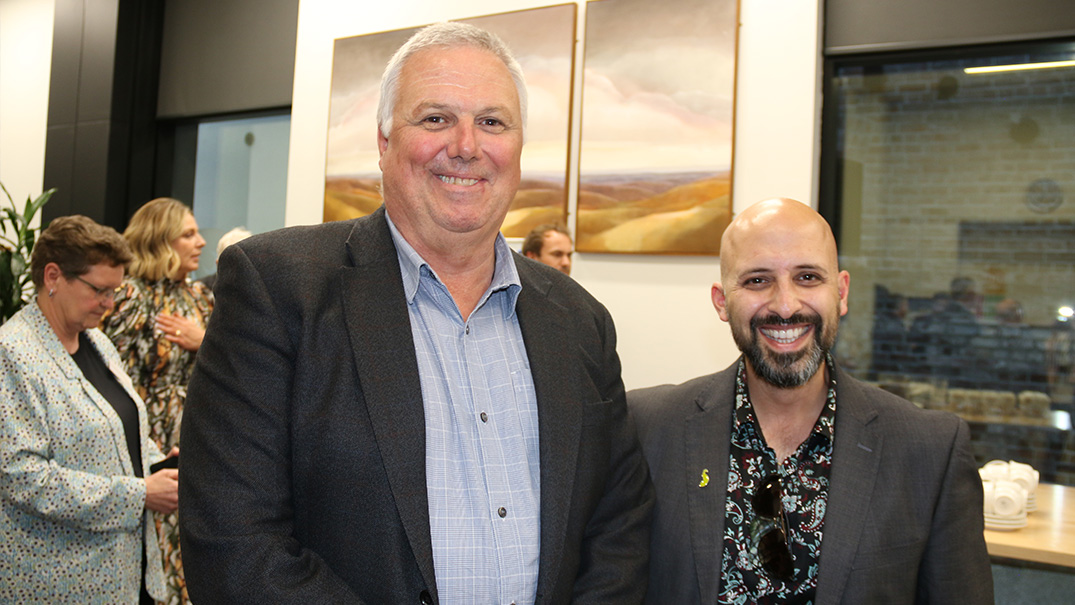
Teaming up with University of Canterbury for the environment
We are teaming up with the University of Canterbury (UC) to tackle some of the most pressing environmental issues of our time.
Both Waitaha Canterbury institutions are using science to support environmental sustainability aimed at creating a more resilient future for all. Together, we are committing to a series of science projects that will help protect the natural world — our most important taonga.
A memorandum of understanding (MoU) signed by the leaders of the university and the regional council yesterday outlines a range of collaborative projects. This includes support for UC student work during academic breaks, student-led research projects, internships, and co-creation and delivery of academic, mutually beneficial research projects.
For the University of Canterbury, this partnership is an excellent example of its strategic intent to collaborate, share expertise, and enhance impact in the community.
"Engagement with our community is at the heart of UC's institutional strategy to be a university that is actively engaged and partnering with the wider city and region to build a better future," UC's Tumu Whakarae/Vice-Chancellor Professor Cheryl de la Rey said.
"We're protecting our future by securing sustainable food sources, clean waterways, expanding our biodiversity and biosecurity efforts, and increasing our understanding of the natural world and our impact on it."
At the heart of this collaboration is a commitment to creating opportunities for more people to get involved in environmental studies and career pathways.
Environment Canterbury Chair Peter Scott said it makes sense that, as the regional council, we work closely with a leading learning organisation such as the University of Canterbury to benefit us all.
"Those in education, research, and innovation can bring so much to our work by way of new ideas and ways of doing things."
By working together, we are setting a powerful example of how we can unite to protect our natural world and create a more sustainable future for generations to come.


